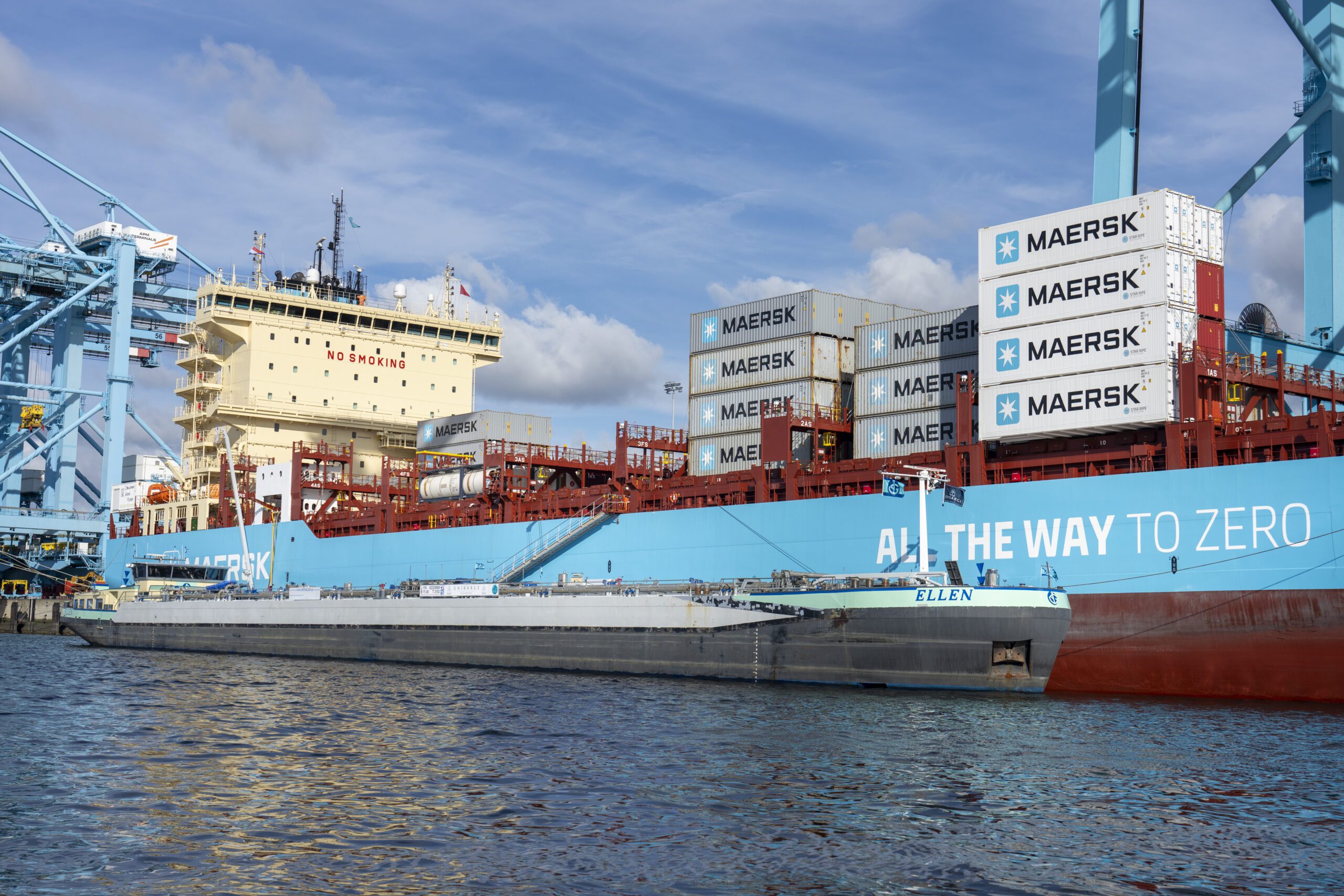The news that the US and China will roll back the majority of the swingeing tariffs imposed on each other, at least temporarily, has given stock markets a boost.
The Danish shipping giant Maersk rose about 12 percent on the stock exchange on Monday morning, after the United States and China partially paused their tariff war for 90 days.
Stock markets have welcomed news of the agreement between the US and China as it certainly gives US and Chinese negotiators a chance to ease the tensions that have cast a shadow over the global economy.
Maersk has been put under pressure by an escalating tariff war between the two countries over the past month. However, Maersk posted solid first-quarter 2025 results with EBIT rising to $1.3bn from $177m a year ago and a revenue growth of 7.8%.
After multiple rounds of tit-for-tat tariffs, the United States and China agreed to drastically roll back tariffs on each other’s goods for an initial 90-day period, in a major step toward easing a trade war between the two powers that has rattled the global economy.
According to US Secretary of the Treasury Scott K.H. Bessent, the world’s two largest economies reached agreement on a 90-day pause and both sides will reduce tariffs by 115 percentage points.
The US had imposed tariffs of 145 percent on Chinese goods, while Beijing responded with 125 percent.
Ahead of the announcement, the US tariff on most Chinese imports stood at 145%. That will now be reduced to 30% for the next 90 days.
China has reduced its own tariffs on US goods from 125% to 10% for the same period.
The announcement, which was made in a joint statement, comes after a marathon of trade negotiations in Switzerland during the weekend between the officials from the world’s two largest economies, during which both sides touted “substantial progress.”
The two sides also agreed to establish “a mechanism to continue discussions about economic and trade relations.”
In a social media post on Sunday, US President Trump said the two nations had a “very good meeting” which hailed a “total reset negotiated in a friendly, but constructive, manner”.
“We want to see, for the good of both China and the US, an opening up of China to American business. Great progress made,” he wrote.
Bessent and US Trade Representative Jamieson Greer were deployed to meet with their Chinese counterparts in Switzerland in an attempt to strike a deal over the weekend.
Speaking at a Monday press conference, Bessent said: “The consensus from both delegations is neither side wants to be decoupled, and what have occurred with these very high tariffs…was an equivalent of an embargo, and neither side wants that. We do want trade. We want more balance in trade. And I think both sides are committed to achieving that.”
The White House called it a “trade deal” whilst a joint statement with full details was released on Monday.
The joint statement said the decision was made after “recognising the importance of their bilateral economic and trade relationship to both countries and the global economy” and “recognising the importance of a sustainable, long-term, and mutually beneficial economic and trade relationship”.
It also said that “the parties will establish a mechanism to continue discussions about economic and trade relations”.
It added that these discussions may be conducted alternately in China and the United States, or a third country.
According to the joint statement, China will also adopt all necessary administrative measures to suspend or remove non-tariff countermeasures taken against the US since April 2.
The talks were the first face-to-face meetings between the two countries since President Trump imposed a 145% tariff on Chinese imports.
The huge tariffs caused turmoil in the financial markets and sparked fears of a global recession.
As shipping analysts admitted yesterday morning, those tariffs will now be reduced to more workable levels. Some of the measures have only been paused, not cancelled.
But for the moment, as analysts say, yesterday’s news is being seen as a “welcome step forward.”



